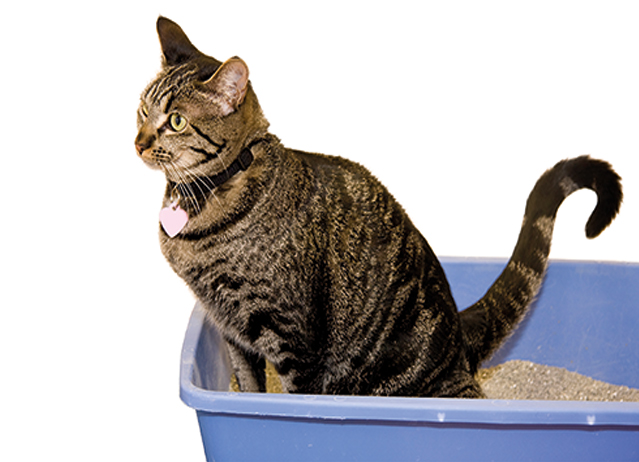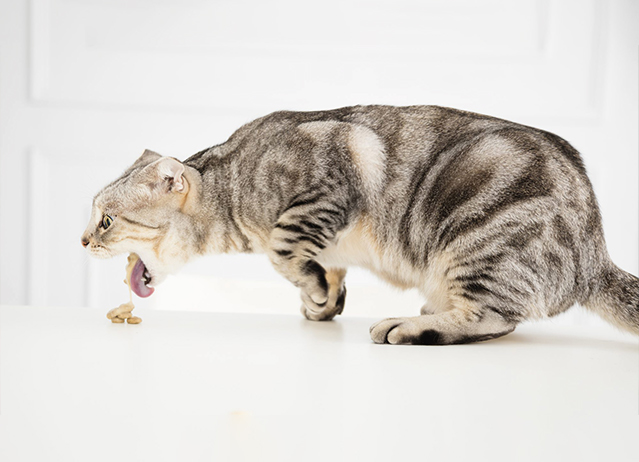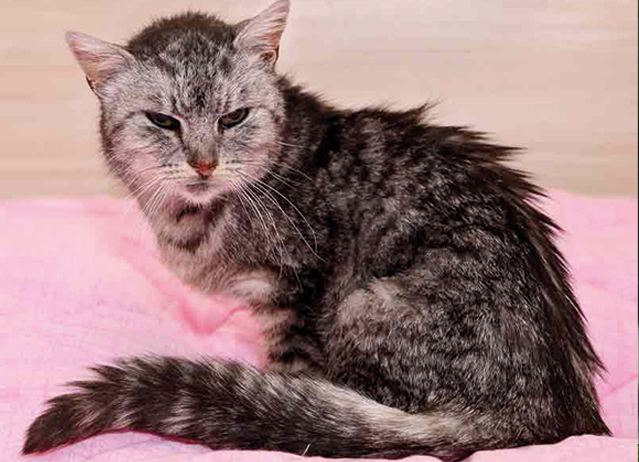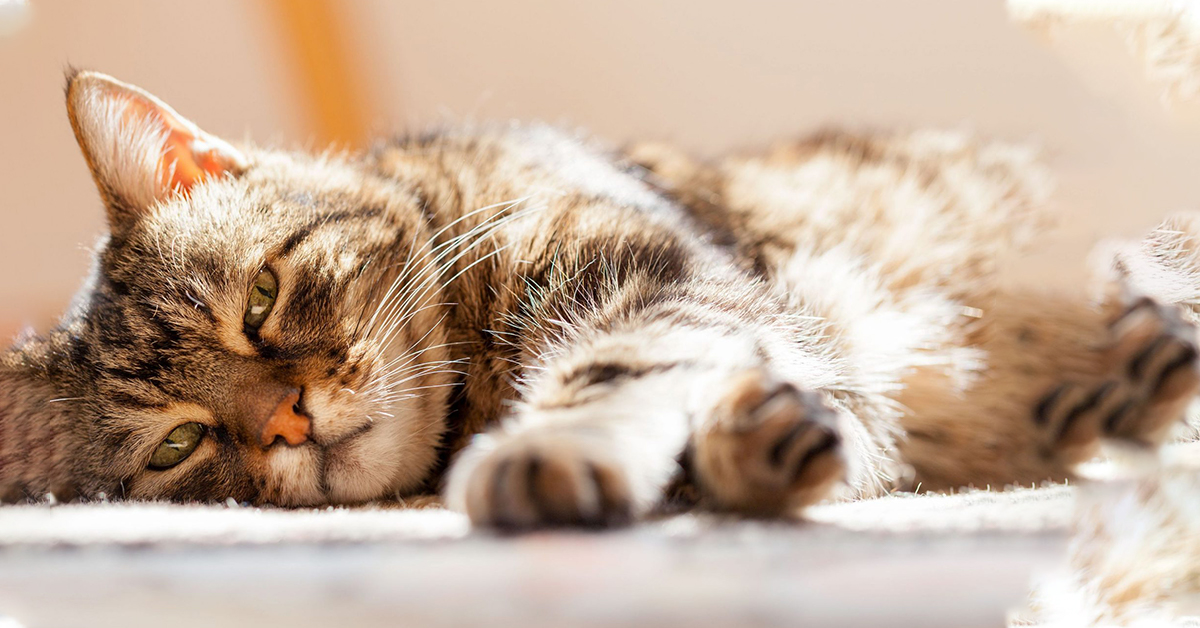Cats are independent animals, but they can still suffer from a wide range of health problems that could affect their quality of life. As a responsible cat owner, the health of your feline pet is going to be on top of your list. Today you will learn about some of the most common health problems in cats and how to spot their symptoms early to give your cat adequate treatment and care.
Let’s now discuss 10 of the most general health issues that occur in cats, their symptoms, causes, and what you can do to keep your cat healthy.
1. Feline Lower Urinary Tract Disease (FLUTD)
Feline Lower Urinary Tract Disease (FLUTD) is a very broad term that covers several conditions affecting the bladder and urethra in cats. It can cause serious discomfort and, if left untreated, lead to life-threatening complications.
Causes:
- Stress
- Poor diet
- Obesity
- Urinary Tract Infections
- Bladder stones
Symptoms:
- Straining to urinate with poor results
- Bleeding in urine
- Urination outside the litter box
- Calling out when urinating
- Excessive grooming around the genitals
Treatment:
Your veterinarian should be consulted right away if you notice any of these symptoms. The cause is usually the determining factor in the course of treatment, but the changes can be as simple as altering food sources, medicating, and in extreme cases, surgery. You will prevent FLUTD if you ensure your cat drinks enough water and is fed healthy food.

2. Dental Disease
Another common disease cats may experience, especially as they get older is dental disease. Over time, plaque and tartar can cause gingivitis, tooth decay, and other infections in the mouth.
Causes:
- Poor dental care
- Poor hygiene
- No dental care at all
- Genetic disposition
Symptoms:
- Bad breath
- Inability to eat
- Drooling
- Reddened, swollen gums
- Tooth loss
Treatment:
Regular check-ups in the oral cavity and cleaning are a perfect way of preventing dental disease. Home brushing and offering dental treats or toys reduce plaque accumulation. Treatment for the dental disease may comprise professional cleaning, extractions, and antibiotics if the infection is confirmed.
3. Obesity
Domesticated cats have lately been discovered to acquire this condition, leading to other health issues including diabetes, joint disease, and heart disease among others.
Causes:
- Overfeeding
- Lack of exercise
- Diet Low quality
- Some medical conditions
Symptoms:
- Rapid weight gain
- Sedentary behavior
- Poor grooming
- Shortness of breath
Treatment:
Preventing obesity starts with giving your cat a healthy diet and regular exercise. Interactive toys, climbing ladders, and playtime can stimulate your kitty’s physical activity. Obese cats should seek professional guidance from the veterinarian, which includes customized dietary recommendations and activity suggestions.
4. Hyperthyroidism
The thyroid gland is overproducing thyroid hormone resulting in conditions of accelerating metabolism. This is more commonly seen in older felines and can lead to any number of nasty health problems.
Causes:
- Overproduction of thyroid hormone
- Benign tumors on the thyroid gland
Symptoms:
- Weight loss though the appetite is increased
- Increased thirst as well as urination
- Hyperactivity
- Vomiting and diarrhea
- Poor coat condition
Treatment:
Hyperthyroidism will be able to respond to medication or radioactive iodine treatment or, in some cases, surgery to remove the entire thyroid gland if this is a severely affected gland. Early diagnosis and treatment can prevent complications that include heart disease and hypertension.

5. Kidney Disease
This disease is typically a chronic condition in most older. The kidneys will slowly lose the function to operate correctly and permit toxins to enter and remain in the system.
Causes:
- Aging
- Infections
- Toxic exposure
- Genetic factors
Symptoms:
- Increased thirst and urination
- Weight loss
- Vomiting
- Lethargy
- Dehydration
Cat Treats for Kidney Problems:
There is no known cure for mankind, but it could be controlled by a special diet, medication, Cat Treats for Kidney Problems, and lots of water for your feline. In a way, regular visits to your veterinarian can help in the diagnosis of kidney disease early on in your feline’s life which could help improve your quality of life. These are kidney support treats, so you know that you’re giving your feline one of the best treatments available. Not only do these help improve the disease management in your feline, but proper hydration and nutrition also go a long way in keeping such diseases under control.
6. Diabetes
Diabetes mellitus in felines results from either low production of insulin by the body or due to the body’s reduced sensitivity to this hormone, consequently resulting in increased levels of sugar in the bloodstream.
Causes:
- Obesity
- Physical inactivity
- Pancreatic disorders
- Genetic predisposition
Symptoms:
- Polydipsia
- Polyuria
- Loss of body weight despite good appetite
- Lethargy
- Weakness in the hind limbs
Treatment:
Diabetes mellitus is normally treated with injections of insulin and dietary control. Early diagnosis and treatment can reduce or even prevent complications such as ketoacidosis, which may be fatal. More important still, weight management forms the cornerstone of prevention and control of diabetes.
7. Feline Asthma
Feline asthma is a respiratory disease characterized by inflammation and narrowing of the airways, in a way that makes them have a tough time breathing.
Causes:
- Allergens (dust, pollen, cigarette smoke)
- Stress
- Infections
Symptoms:
- Coughing or wheezing
- Labored breathing
- Open-mouth breathing
- Lethargy
Treatment:
It is controlled through the administration of bronchodilators and corticosteroids. You should determine their exposure to any triggering agents, for example, dust or cigarette smoke, and have these minimized. If your feline seems to have trouble breathing contact your veterinarian immediately.
8. Parasites
These are a common group of health disorders of your pet. Internal and external parasites may include, for example, fleas, ticks, ear mites, and intestinal worms.
Causes:
- Exposure to other infested animals
- Contaminated environment
- Ingesting contaminated prey or food
Symptoms:
- Scratching or over-grooming
- Hair loss or skin rash
- Diarrhea
- Vomiting
- Weight loss
Treatment:
To control parasites, your feline must apply flea, tick, and worm preventatives frequently, depending on the level of outdoor exposure for your feline. For an infected feline, the treatment applied by the vet will depend on what may please the infected feline at best and maybe topical application, oral medication, and injections.
9. Eye Infections
Bacterial, viral, or traumatic causes of eye infections in felines are common, but the disease may occur in any age group, particularly in the kittens.
Causes:
- Bacterial or viral infection
- For instance, feline herpesvirus
- Foreign body in the eye
- Trauma
- Allergies
Symptoms:
- Conjunctival hyperemia or bloodshot eyes
- Discharge
- Squinting or increased blinking
- Rubbing the eyes
- Photophobia
Treatment:
This depends on what is causing the infection. Most bacterial infections are treated with an eye drop or ointment containing antibiotics; viral infections might be treated with supportive care and antiviral medication. Good care, where the owner ensures the feline’s eyes are kept clean and monitored for any changes, can prevent serious complications.

10. Arthritis
Most cats normally get arthritis as they get older. This is an inflammation of the joints, and it will impair a feline’s mobility and comfort. This may not be noticed or acknowledged by many owners as cats conceal pain well.
Causes:
- Aging
- Joint injuries
- Obesity
- Genetic predisposition
Symptoms:
- Limping or stiffness
- Difficulty in jumping or climbing
- Reduced activity
- Irritability or sensitivity to the touch
- Grooming less, particularly in the areas surrounding the affected joints
Treatment:
The arthritis can be kept under control by maintaining an ideal body weight, anti-inflammatory medication, and joint supplements like glucosamine and chondroitin. Providing comfortable resting places for your feline, and gentle exercise, greatly improve the quality of life.
Conclusions:
If you know what common health issues your feline is susceptible to, you can work even more proactively to keep your feline friend happy and healthy. Not only do regular veterinary checkups and a wholesome diet and active lifestyle help prevent or manage most of these disorders, but also paying close attention to changes in your feline’s behavior or physical appearance is usually the first step toward effective treatment.
As an informed and proactive owner, your feline will be able to live a long, healthy, and fulfilling life.
Related: Tips on How to Pick the Best Furniture Your Cat Won’t Scratch

